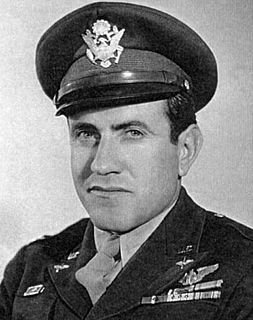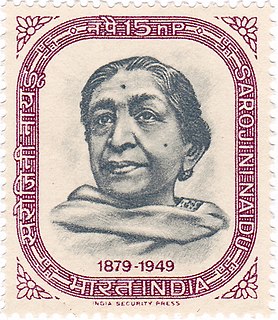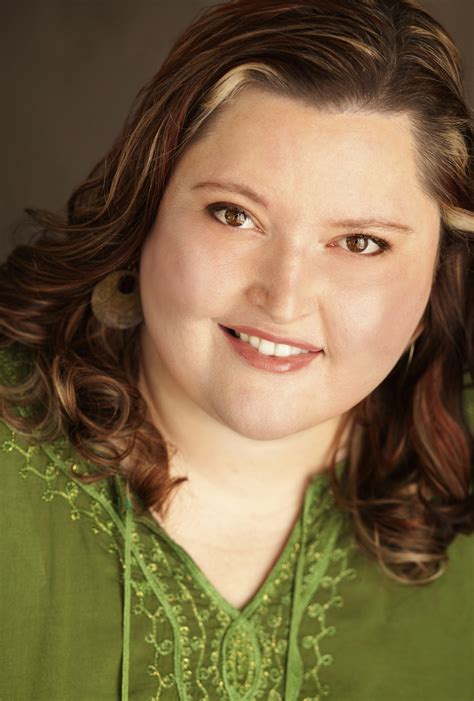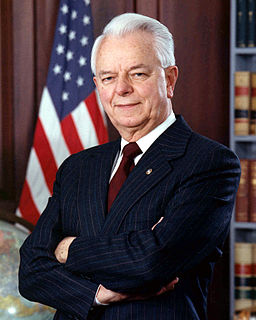Top 637 Weep Quotes & Sayings - Page 11
Explore popular Weep quotes.
Last updated on November 8, 2024.
What can be said in New Year rhymes, That's not been said a thousand times? The new years come, the old years go, We know we dream, we dream we know. We rise up laughing with the light, We lie down weeping with the night. We hug the world until it stings, We curse it then and sigh for wings. We live, we love, we woo, we wed, We wreathe our prides, we sheet our dead. We laugh, we weep, we hope, we fear, And that's the burden of a year.
Spring and Fall: To a Young Child Márgarét, are you gríeving Over Goldengrove unleaving? Leáves, líke the things of man, you With your fresh thoughts care for, can you? Ah! ás the heart grows older It will come to such sights colder By and by, nor spare a sigh Though worlds of wanwood leafmeal lie; And yet you wíll weep and know why. Now no matter, child, the name: Sórrow's spríngs áre the same. Nor mouth had, no nor mind, expressed What heart heard of, ghost guessed: It ís the blight man was born for, It is Margaret you mourn for.
Night of Sleepless Love The night above. We two. Full moon. I started to weep, you laughed. Your scorn was a god, my laments moments and doves in a chain. The night below. We two. Crystal of pain. You wept over great distances. My ache was a clutch of agonies over your sickly heart of sand. Dawn married us on the bed, our mouths to the frozen spout of unstaunched blood. The sun came through the shuttered balcony and the coral of life opened its branches over my shrouded heart.
Who would have believed that the daughters of that mighty city would one day be wandering as servants and slaves on the shores of Egypt and Africa, or that Bethlehem would daily receive noble Romans, distinguished ladies, brought up in wealth and now reduced to beggary? I cannot help them all, but I grieve and weep with them, and am completely absorbed in the duties which charity imposes on me. I have put aside my commentary on Ezekiel and almost all study. For today we must translate the precepts of the Scriptures into deeds; instead of speaking saintly words, we must act them.
Someone who doesn't make the (Olympic) team might weep and collapse. In my day no one fell on the track and cried like a baby. We lost gracefully. And when someone won, he didn't act like he'd just become king of the world, either. Athletes in my day were simply humble in our victory. I believe we were more mature then...Maybe it's because the media puts so much pressure on athletes; maybe it's also the money. In my day we competed for the love of the sport...In my day we patted the guy who beat us on the back, wished him well, and that was it.
I never heard weeping like that before or after; not from a child, nor a man wounded in the palm, nor a tortured man, nor a girl dragged off to slavery from a taken city. If you heard the woman you most hate in the world weep so, you would go to comfort her. You would fight your way through fire and spears to reach her. And I knew who wept, and what had been done to her, and who had done it.
Cities at night, I feel, contain men who cry in their sleep and then say Nothing. It's nothing. Just sad dreams. Or something like that...Swing low in your weep ship, with your tear scans and sob probes, and you would mark them. Women--and they can be wives, lovers, gaunt muses, fat nurses, obsessions, devourers, exes, nemeses--will wake and turn to these men and ask, with female need-to-know, "What is it?" And the men will say, "Nothing. No it isn't anything really. Just sad dreams.
So we and our elaborately evolving computers may meet each other halfway. Someday a human being, named perhaps Fred White, may shoot a robot named Pete Something-or-other, which has come out of a General Electric factory, and to his surprise see it weep and bleed. And the dying robot may shoot back and, to its surprise, see a wisp of gray smoke arise from the electric pump that it supposed was Mr. White's beating heart. It would be rather a great moment of truth for both of them.
While I generally find that great myths are great precisely because they represent and embody great universal truths, the myth of romantic love is a dreadful lie. Perhaps it is a necessary lie in that it ensures the survival of the falling-in-love experience that traps us into marriage. But as a psychiatrist I weep in my heart almost daily for the ghastly confusion and suffering that this myth fosters. Millions of people waste vast amounts of energy desperately and futilely attempting to make the reality of their lives conform to the unreality of the myth.
If a friend of mine gave a feast, and did not invite me to it, I should not mind a bit. but if a friend of mine had a sorrow and refused to allow me to share it, I should feel it most bitterly. If he shut the doors of the house of mourning against me, I would move back again and again and beg to be admitted so that I might share in what I was entitled to share. If he thought me unworthy, unfit to weep with him, I should feel it as the most poignant humiliation.
Until the Left took over American public education in the second half of the 20th century, it was generally excellent - look at the high level of eighth-grade exams from early in the 20th century and you will weep. The more money the Left has gotten for education - America now spends more per student than any country in the world - the worse the academic results. And the Left has removed God and dress codes from schools - with socially disastrous results.
Isn't it sad, that in a time when we face so many devastating problems - poverty, HIV/AIDS, war and conflict - that in our Communion we should be investing so much time and energy on disagreement about sexual orientation? [The Communion, which] used to be known for embodying the attribute of comprehensiveness, of inclusiveness, where we were meant to accommodate all and diverse views, saying we may differ in our theology but we belong together as sisters and brothers [now seems] hell-bent on excommunicating one another. God must look on and God must weep.
You are doing God's work. You are doing it wonderfully well. He is blessing you, and He will bless you, --even--no, -especially--when your days and your nights may be most challenging. Like the woman who anonymously, meekly, perhaps even with hesitation and some embarrassment, fought her way through the crowd just to touch the hem of the Master's garment, so Christ will say to the women who worry and wonder and weep over their responsibility as mothers, `Daughter, be of good comfort; thy faith hath made thee whole.' And it will make your children whole as well.
When your soul is pricked by compunction and gradually changed, it becomes a fountain flowing with rivers of tears and compunction. ... If any one of you ever happens to communicate with tears, whether you weep before the Liturgy or in the course of the divine Liturgy, or at the very time that you receive the divine Gifts, and does not desire to do this for the rest of his days and nights, it will avail him nothing to have wept merely once. It is not this alone that at once purifies us and makes us worthy; it is daily compunction that does not cease until death.
Nay, do not grieve tho' life be full of sadness,
Dawn will not veil her spleandor for your grief,
Nor spring deny their bright, appointed beauty
To lotus blossom and ashoka leaf.
Nay, do not pine, tho' life be dark with trouble,
Time will not pause or tarry on his way;
To-day that seems so long, so strange, so bitter,
Will soon be some forgotten yesterday.
Nay, do not weep; new hopes, new dreams, new faces,
The unspent joy of all the unborn years,
Will prove your heart a traitor to its sorrow,
And make your eyes unfaithful to their tears.
I laughed and pointed out that "Hash Browns Mean Nothing Without You" was a pretty good name for a band. "Or a song," the Duke said, and then she started singing all glam rock, a glove up to her face holding an imaginary mic as she rocked out an a cappella power ballad. "Oh, I deep fried for you / But now I weep 'n' cry for you / Oh, babe, this meal was made for two / And these hash browns mean nothing, oh these hash browns mean nothing, yeah these HASH BROWNS MEAN NOTHIN' without you.
Before this war is over,' [Walter] said - or something said through his lips - 'every man and woman and child in Canada will feel it - you, Mary, will feel it - feel it to your heart's core. You will weep tears of blood over it. The Piper has come - and he will pipe until every corner of the world has heard his awful and irresistible music. It will be years before the dance of death is over - years, Mary. And in those years millions of hearts will break.
It thunders, howls, roars, hisses, whistles, blusters, hums, growls, rumbles, squeaks, groans, sings, crackles, cracks, rattles, flickers, clicks, snarls, tumbles, whimpers, whines, rustles, murmurs, crashes, clucks, to gurgle, tinkles, blows, snores, claps, to lisp, to cough, it boils, to scream, to weep, to sob, to croak, to stutter, to lisp, to coo, to breathe, to clash, to bleat, to neigh, to grumble, to scrape, to bubble. These words, and others like them, which express sounds are more than mere symbols: they are a kind of hieroglyphics for the ear.
I tried to concentrate on the angel's voice instead. "Bella, please! Bella, listen to me, please, please, please, Bella, please!" he begged. Yes, I wanted to say. Anything. But I couldn't find my lips. "Carlisle!" the angel called, agony in his perfect voice. "Bella, Bella, no, oh please, no, no!" And the angel was sobbing tearless, broken sobs. The angel shouldn't weep, it was wrong. I tried to find him, to tell him everything was fine, but the water was so deep, it was pressing on me, and I couldn't breathe.
Come away, come away, Death, And in sad cypress let me be laid; Fly away, fly away, breath, I am slain by a fair cruel maid. My shroud of white stuck all with yew, O prepare it! My part of death no one so true did share it. Not a flower, not a flower sweet, On my black coffin let there be strewn: Not a friend, not a friend greet My poor corpse, where my bones shall be thrown. A thousand thousand sighs to save, lay me O where Sad true lover never find my grave, to weep there!
I have so much love for you, I could fill rooms with it. Buildings. You’re surrounded by it wherever you go, you walk through it, breathe it...it’s in your lungs, and under your tongue, and between your fingers and toes...” His mouth moved passionately over hers, urging her lips apart. It was a kiss to level mountains and shake stars from the sky. It was a kiss to make angels faint and demons weep...a passionate, demanding, soul-searing kiss that nearly knocked the earth off its axis. Or at least that was how Poppy felt about it.
Home they brought her warrior dead: She nor swooned, nor uttered cry: All her maidens, watching, said, 'She must weep or she will die.' Then they praised him, soft and low, Called him worthy to be loved, Truest friend and noblest foe; Yet she neither spoke nor moved. Stole a maiden from her place, Lightly to the warrior stepped, Took the face-cloth from the face; Yet she neither moved nor wept. Rose a nurse of ninety years, Set his child upon her knee- Like summer tempest came her tears- 'Sweet my child, I live for thee.' -Alfred Lord Tennyson
That's why I want to speak to you now. To say: no person, trying to take responsibility for her or his identity, should have to be so alone. There must be those among whom we can sit down and weep, and still be counted as warriors. (I make up this strange, angry packet for you, threaded with love.) I think you thought there was no such place for you, and perhaps there was none then, and perhaps there is none now; but we will have to make it, we who want an end to suffering, who want to change the laws of history, if we are not to give ourselves away.
Come little children I'll take thee away, into a land of Enchantment Come little children the time's come to play here in my garden of Shadows Follow sweet children I'll show thee the way through all the pain and the Sorrows Weep not poor childlen for life is this way murdering beauty and Passions Hush now dear children it must be this way to weary of life and Deceptions Rest now my children for soon we'll away into the calm and the Quiet Come little children I'll take thee away, into a land of Enchantment Come little children the time's come to play here in my garden of Shadows
It may be safely affirmed that there neither is, nor can be, any essential difference between the language of prose and metrical composition.... They both speak by and to the same organs; the bodies in which both of them are clothed may be said to be of the same substance, their affections are kindred, and almost identical, not necessarily differing even in degree; Poetry sheds no tears "such as Angels weep," but natural and human tears; she can boast of no celestial ichor that distinguishes her vital juices from those of prose; the same human blood circulates through the veins of them both.
I have to ask myself how I can possibly expect to know Jesus as he would want to be known if my life remains unscathed by trouble and grief. How can I hope to grasp anything of God's heart for this broken planet if I never weep because its brokenness touches me and breaks my heart? How can I reflect his image if I never share in his sufferings? And how will any of us ever learn to treasure his hesed and grace if we never experience phases where these blessings seem absent?
When heaven doth weep, doth not the earth o'erflow? If the winds rage, doth not the sea wax mad, Threatening the welkin with his big-swoln face? And wilt thou have a reason for this coil? I am the sea; hark, how her sighs do blow! She is the weeping welkin, I the earth: Then must my sea be moved with her sighs; Then must my earth with her continual tears Become a deluge, overflow'd and drown'd: For why my bowels cannot hide her woes, But like a drunkard must I vomit them. Then give me leave, for losers will have leave To ease their stomachs with their bitter tongues.
Today I weep for my country. No more is the image of America one of strong, yet benevolent peacekeeper. ... Around the globe, our friends mistrust us, our word is disputed, our intentions are questioned. We flaunt our superpower status with arrogance....After war has ended the United States will have to rebuild much more than the country of Iraq. We will have to rebuild America's image around the globe.
I look at some of the great novelists, and I think the reason they are great is that they're telling the truth. The fact is they're using made-up names, made-up people, made-up places, and made-up times, but they're telling the truth about the human being- what we are capable of, what makes us lose, laugh, weep, fall down, and gnash our teeth and wring our hands and kill each other and love each other.
A few more years shall roll,
A few more seasons come;
And we shall be with those that rest,
Asleep within the tomb.
A few more storms shall beat
On this wild rocky shore;
And we shall be where tempests cease,
And surges swell no more.
A few more struggles here,
A few more partings o'er,
A few more toils, a few more tears,
And we shall weep no more.
Then, O my Lord, prepare
My soul for that blest day;
Oh, wash me in Thy precious blood,
And take my sins away.
I was an infant when my mother went To see an atheist burned. She took me there. The dark-robed priests were met around the pile; The multitude was gazing silently; And as the culprit passed with dauntless mien, Tempered disdain in his unaltering eye, Mixed with a quiet smile, shone calmly forth; The thirsty fire crept round his manly limbs; His resolute eyes were scorched to blindness soon; His death-pang rent my heart! the insensate mob Uttered a cry of triumph, and I wept. Weep not, child! cried my mother, for that man Has said, 'There is no God.'
Society, as we have constituted it, will have no place for me, has none to offer; but Nature, whose sweet rains fall on unjust and just alike, will have clefts in the rocks where I may hide, and secret valleys in whose silence I may weep undisturbed. She will hang the night with stars so that I may walk abroad in the darkness without stumbling, and send the wind over my footprints so that none may track me to my hurt: she will cleance me in the great waters, and with bitter herbs make me whole.
My friends: Music is the language of spirits. Its melody is like the frolicsome breeze that makes the strings quiver with love. When the gentle fingers of Music knock at the door of our feelings, they awaken memories that have long lain hidden in the depths of the Past. The sad strains of Music bring us mournful recollections; and her quiet strains bring us joyful memories. The sound of strings makes us weep at the departure of a dear one, or makes us smile at the peace God has bestowed upon us.
When I have seen by Time's fell hand defaced The rich proud cost of outworn buried age; When sometime lofty towers I see down-razed And brass eternal slave to mortal rage; When I have seen the hungry ocean gain Advantage on the kingdom of the shore, And the firm soil win of the watery main, Increasing store with loss and loss with store; When I have seen such interchange of state, Or state itself confounded to decay; Ruin hath taught me thus to ruminate, That Time will come and take my love away. This thought is as a death which cannot choose But weep to have that which it fears to lose.
The mysteries of a universe made of drops of fire and clods of mud do not concern us in the least. The fate of humanity condemned ultimately to perish from cold is not worth troubling about. If you take it to heart it becomes an unendurable tragedy. If you believe in improvement you must weep, for the attained perfection must end in cold, darkness and silence. In a dispassionate view the ardour for reform, improvement for virtue, and knowledge, and even for beauty is only a vain sticking up for appearances as though one were anxious about the cut of one's clothes in a community of blind men.

































